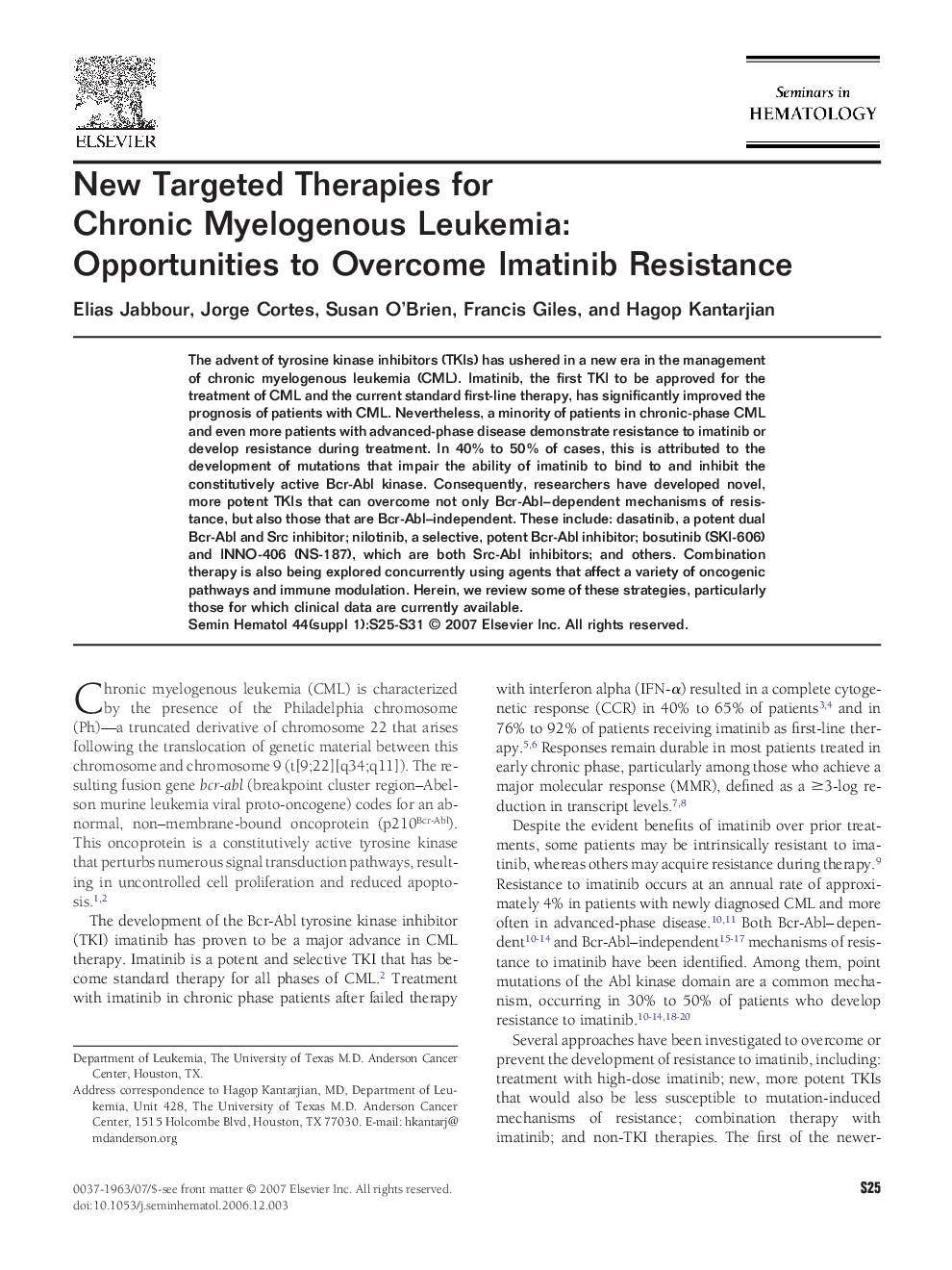| Article ID | Journal | Published Year | Pages | File Type |
|---|---|---|---|---|
| 3334033 | Seminars in Hematology | 2007 | 7 Pages |
The advent of tyrosine kinase inhibitors (TKIs) has ushered in a new era in the management of chronic myelogenous leukemia (CML). Imatinib, the first TKI to be approved for the treatment of CML and the current standard first-line therapy, has significantly improved the prognosis of patients with CML. Nevertheless, a minority of patients in chronic-phase CML and even more patients with advanced-phase disease demonstrate resistance to imatinib or develop resistance during treatment. In 40% to 50% of cases, this is attributed to the development of mutations that impair the ability of imatinib to bind to and inhibit the constitutively active Bcr-Abl kinase. Consequently, researchers have developed novel, more potent TKIs that can overcome not only Bcr-Abl–dependent mechanisms of resistance, but also those that are Bcr-Abl–independent. These include: dasatinib, a potent dual Bcr-Abl and Src inhibitor; nilotinib, a selective, potent Bcr-Abl inhibitor; bosutinib (SKI-606) and INNO-406 (NS-187), which are both Src-Abl inhibitors; and others. Combination therapy is also being explored concurrently using agents that affect a variety of oncogenic pathways and immune modulation. Herein, we review some of these strategies, particularly those for which clinical data are currently available.
